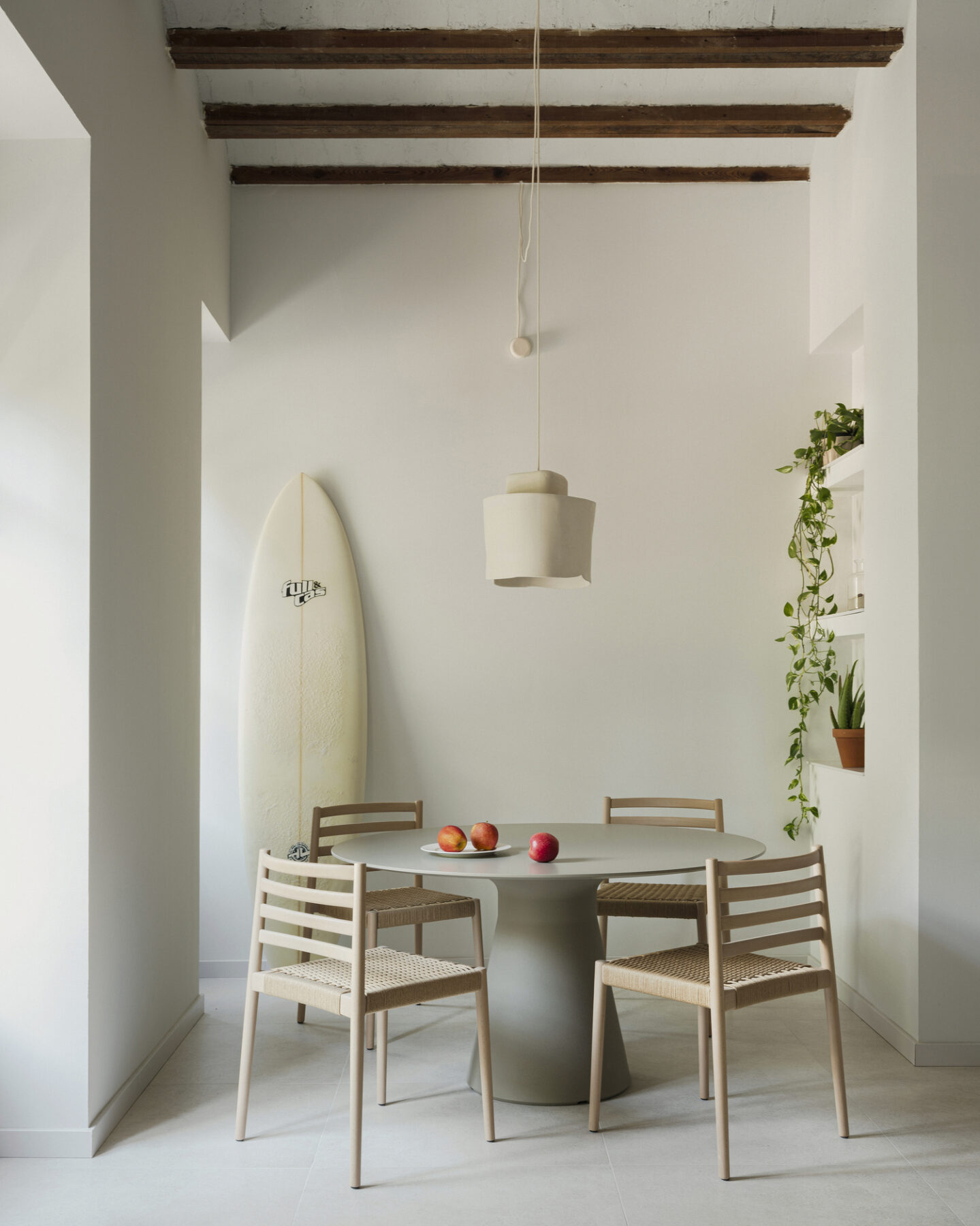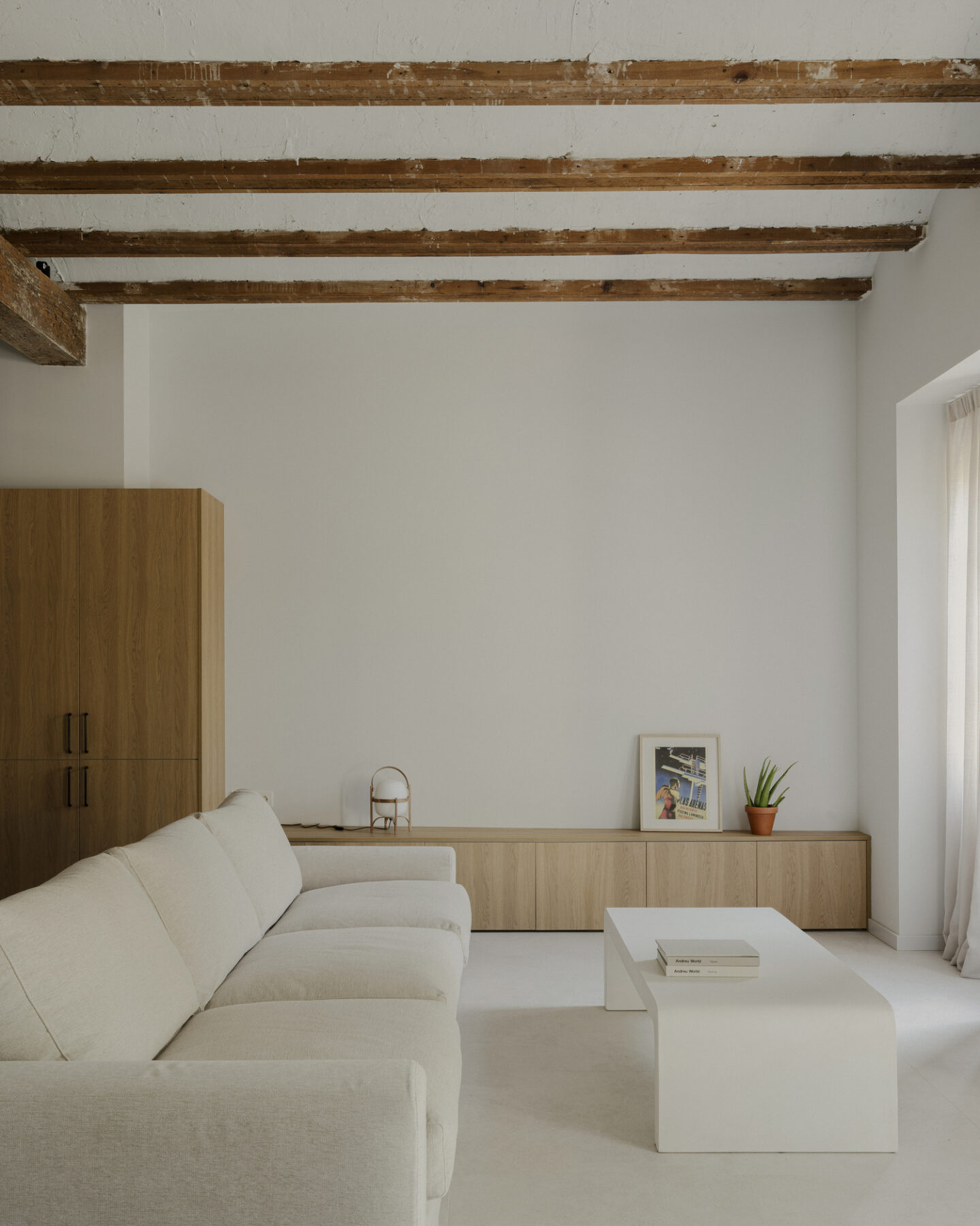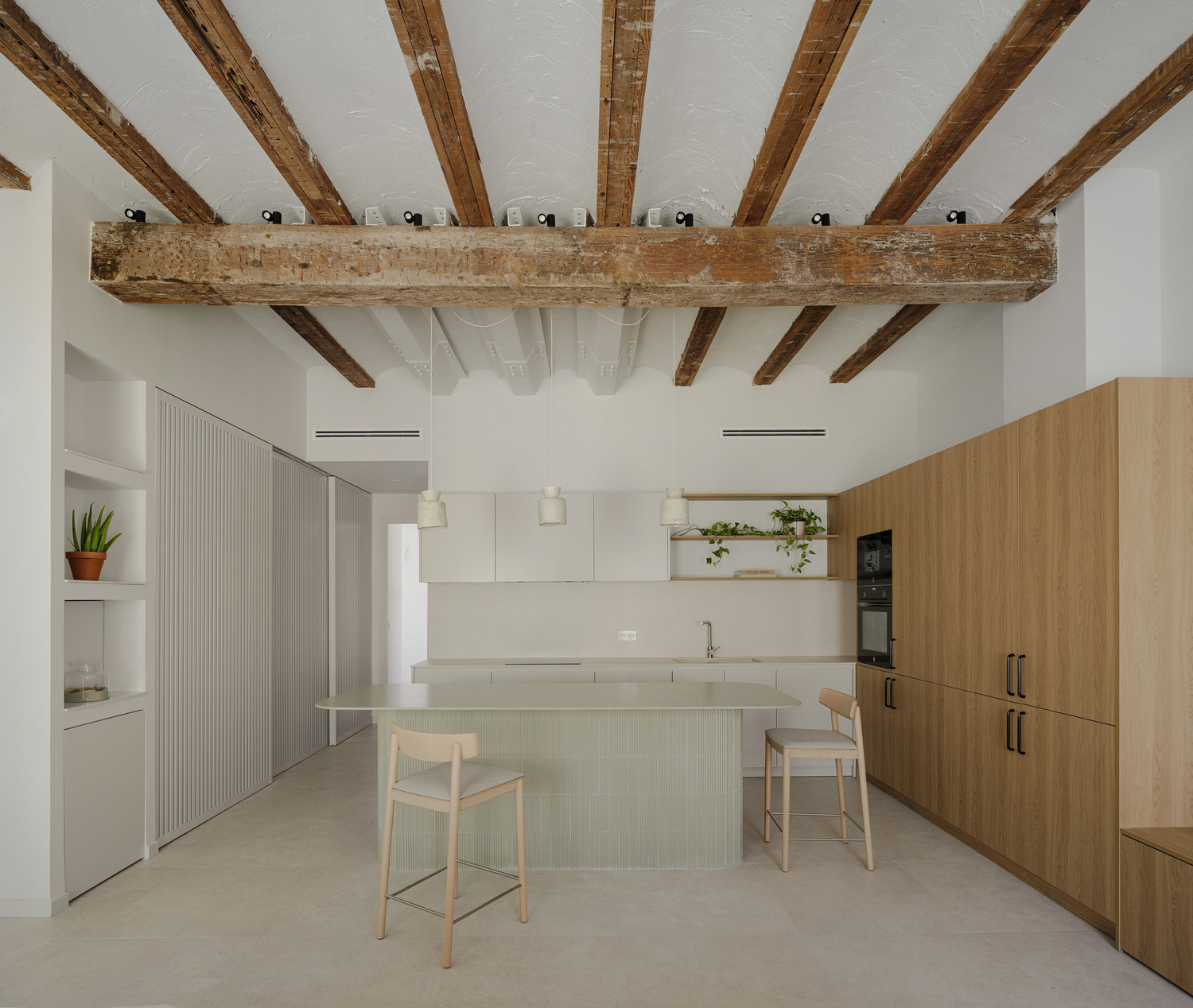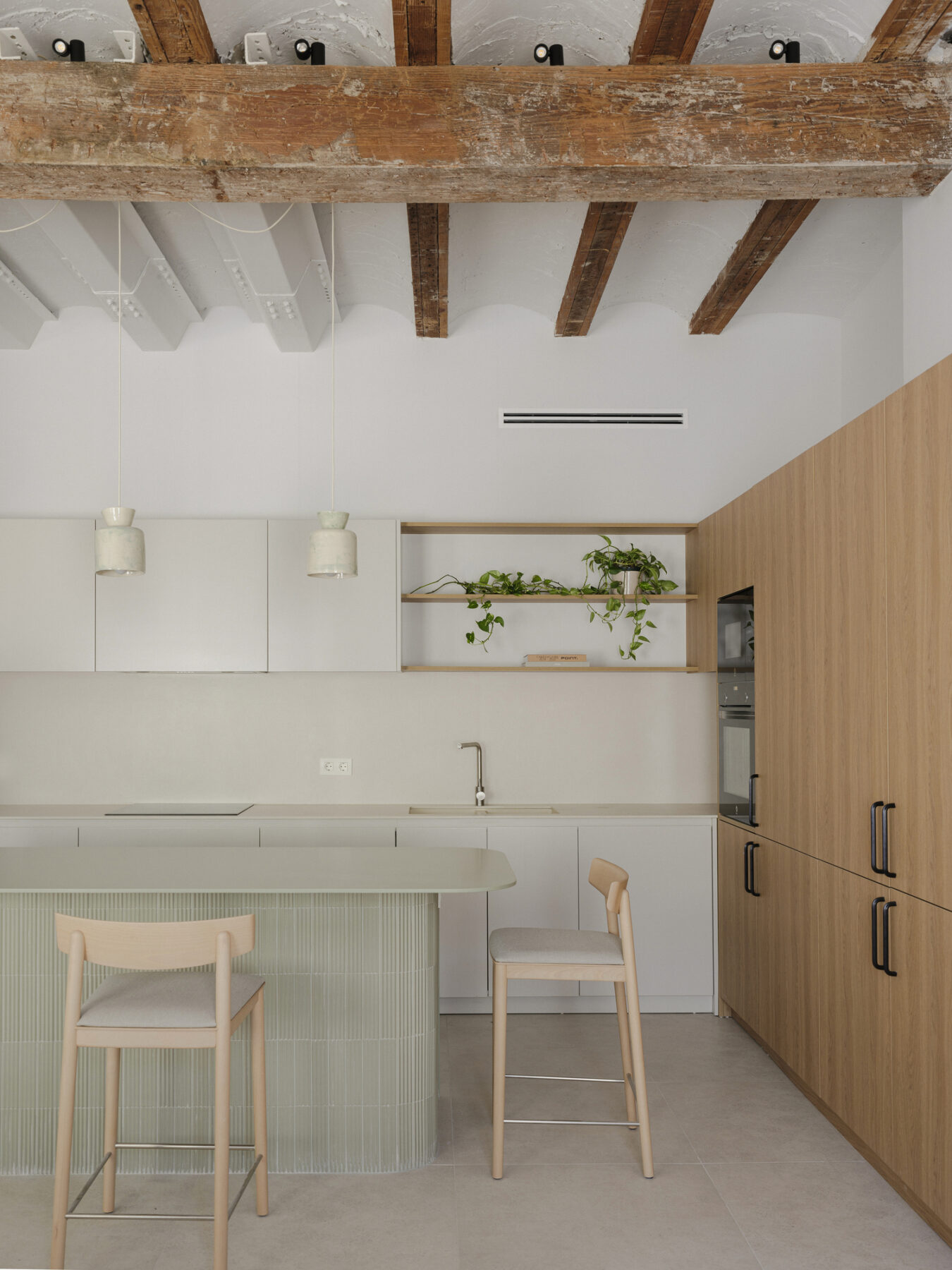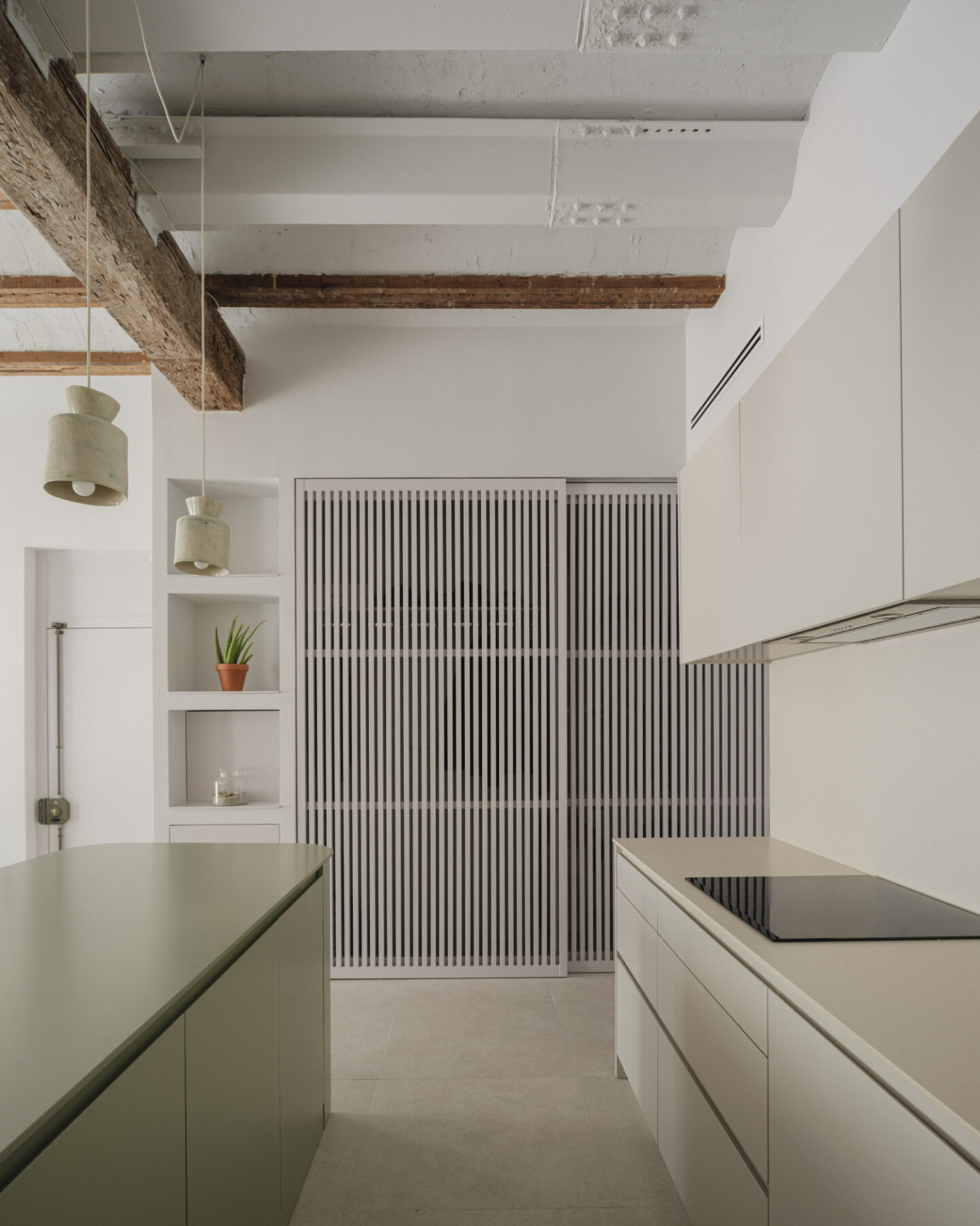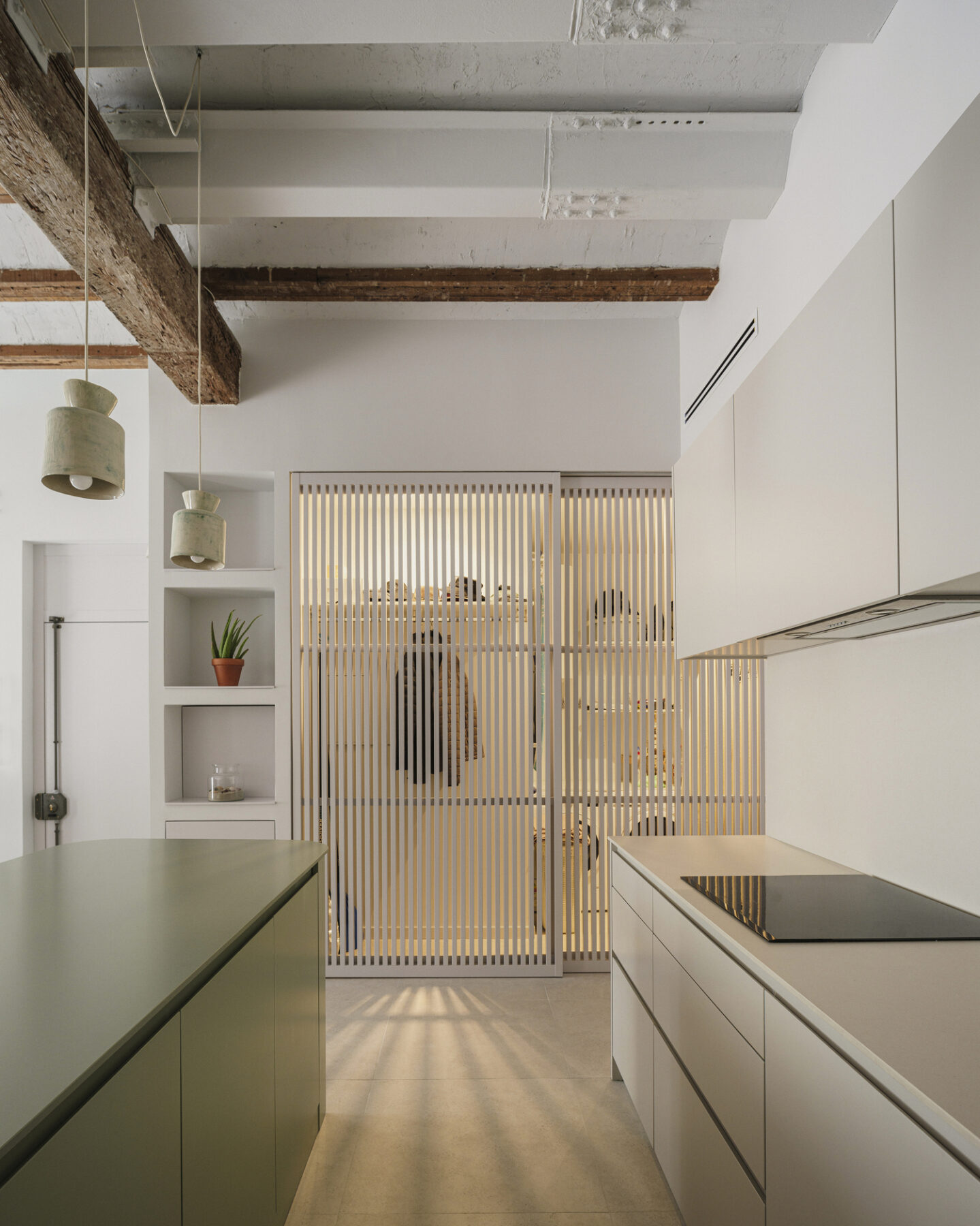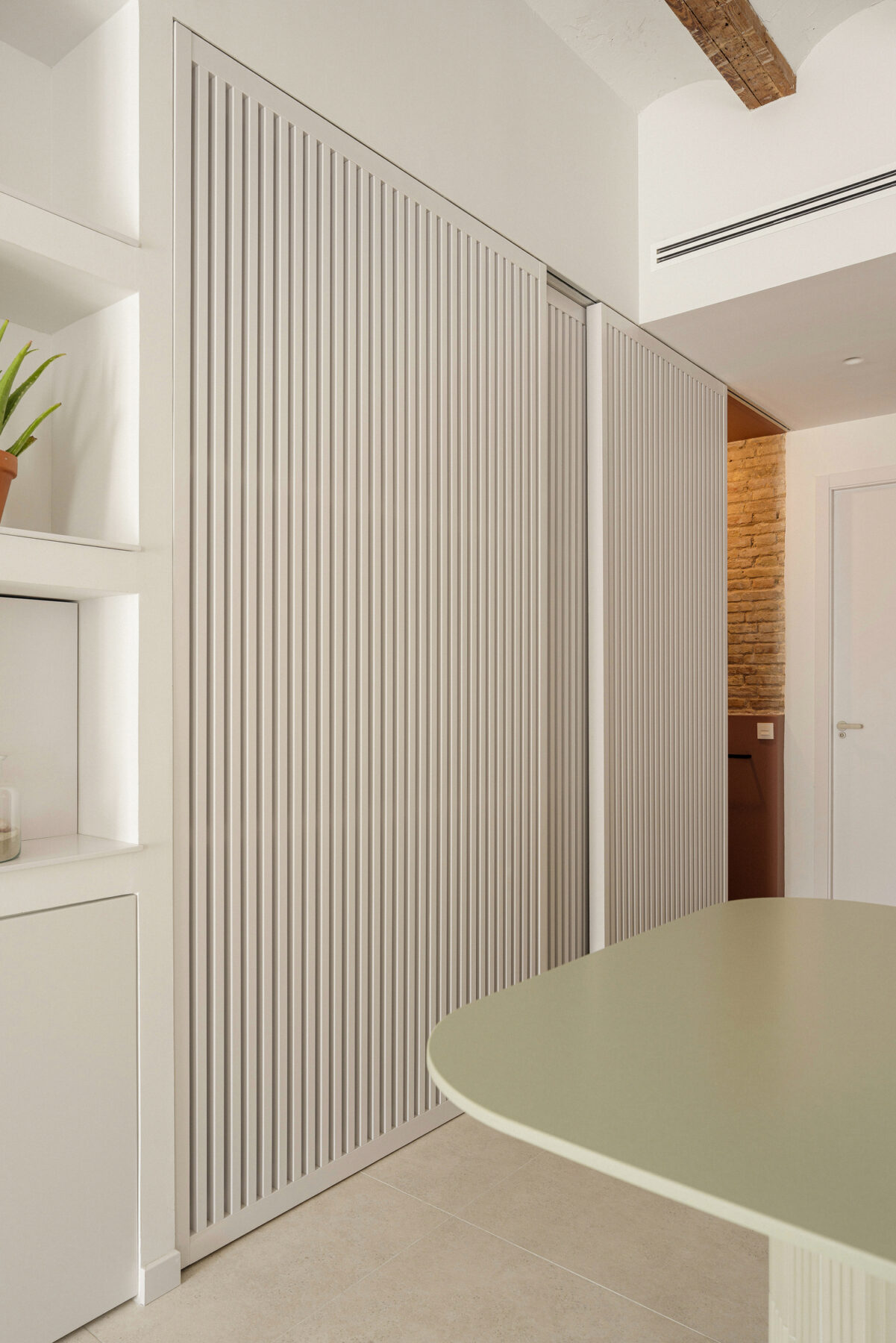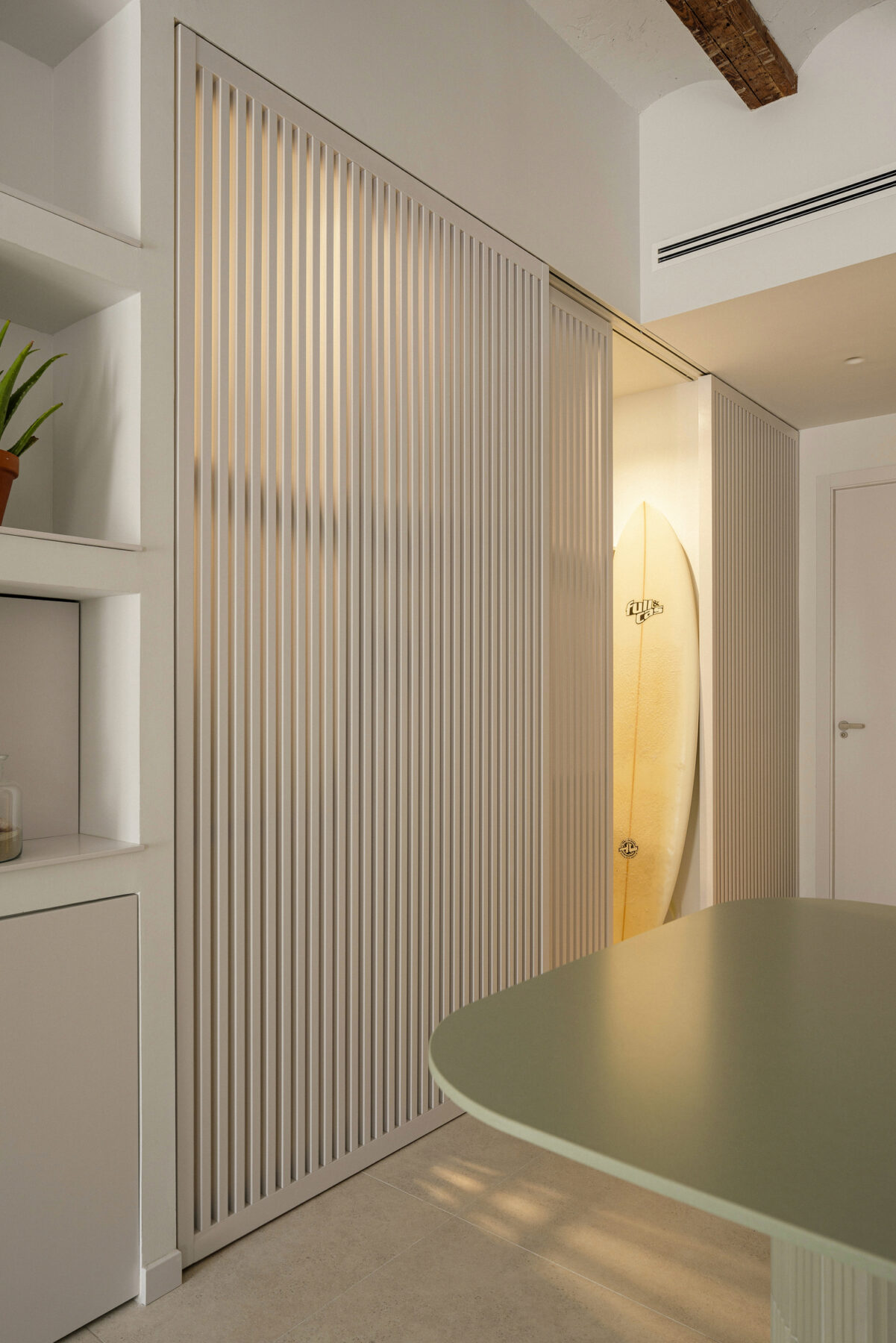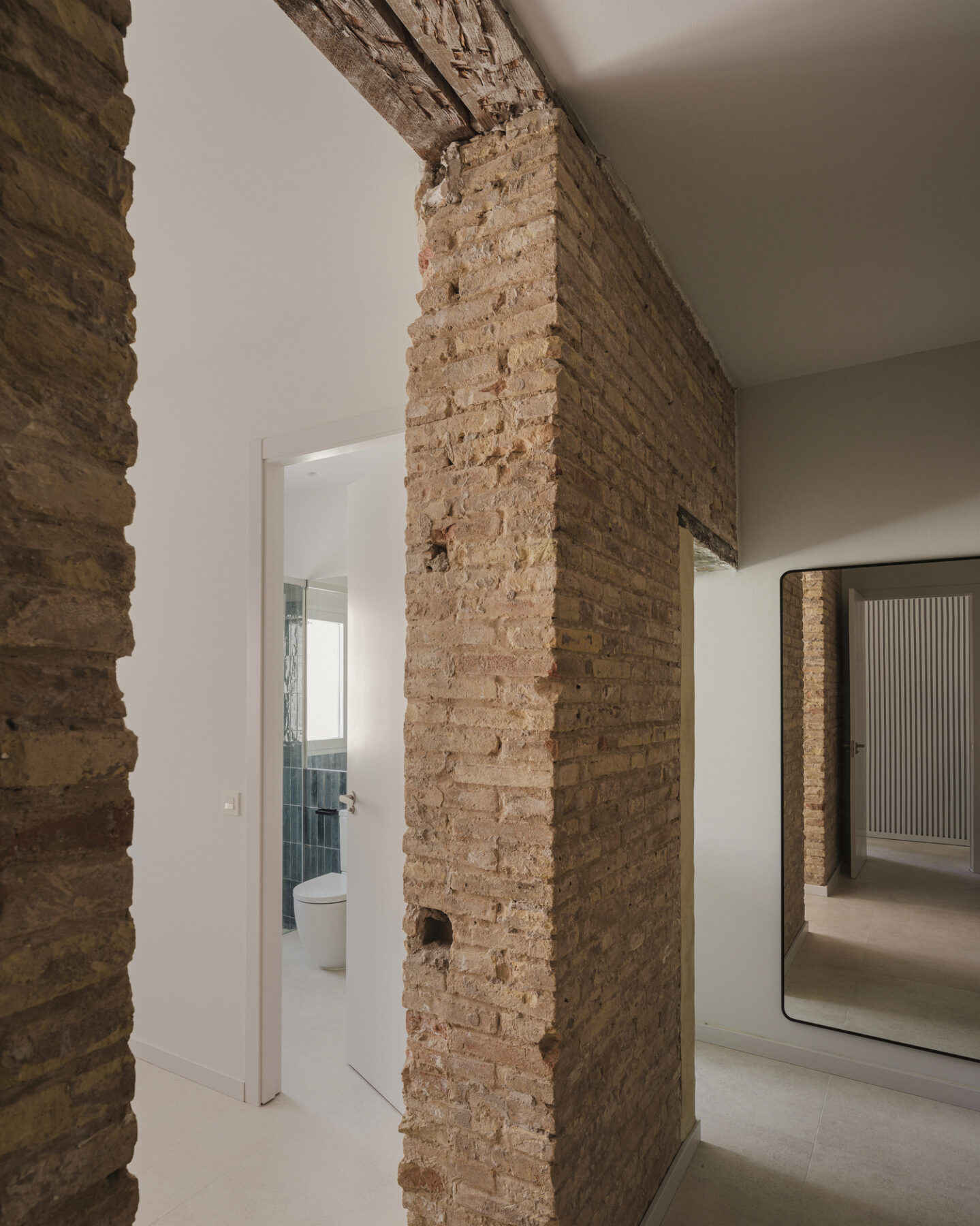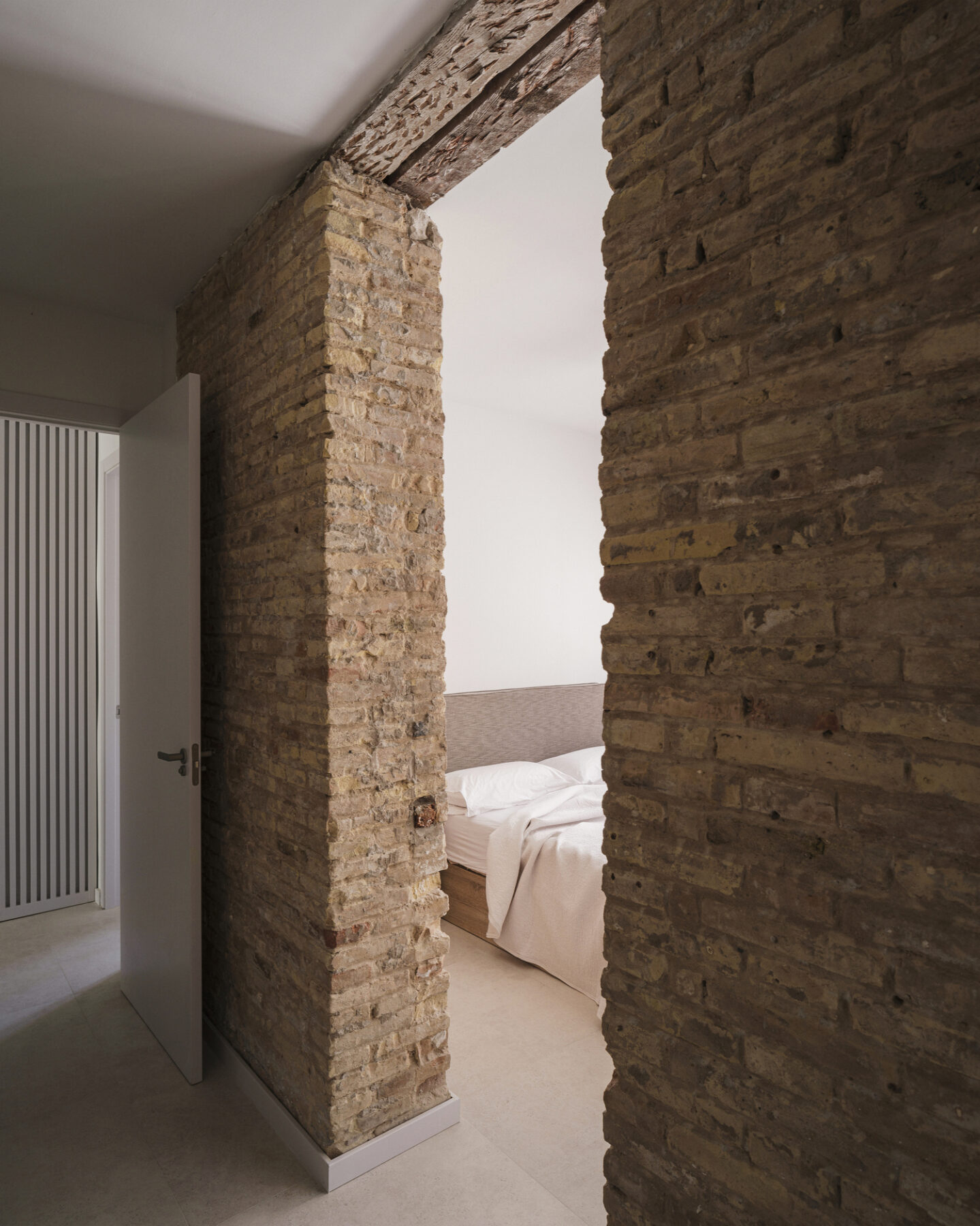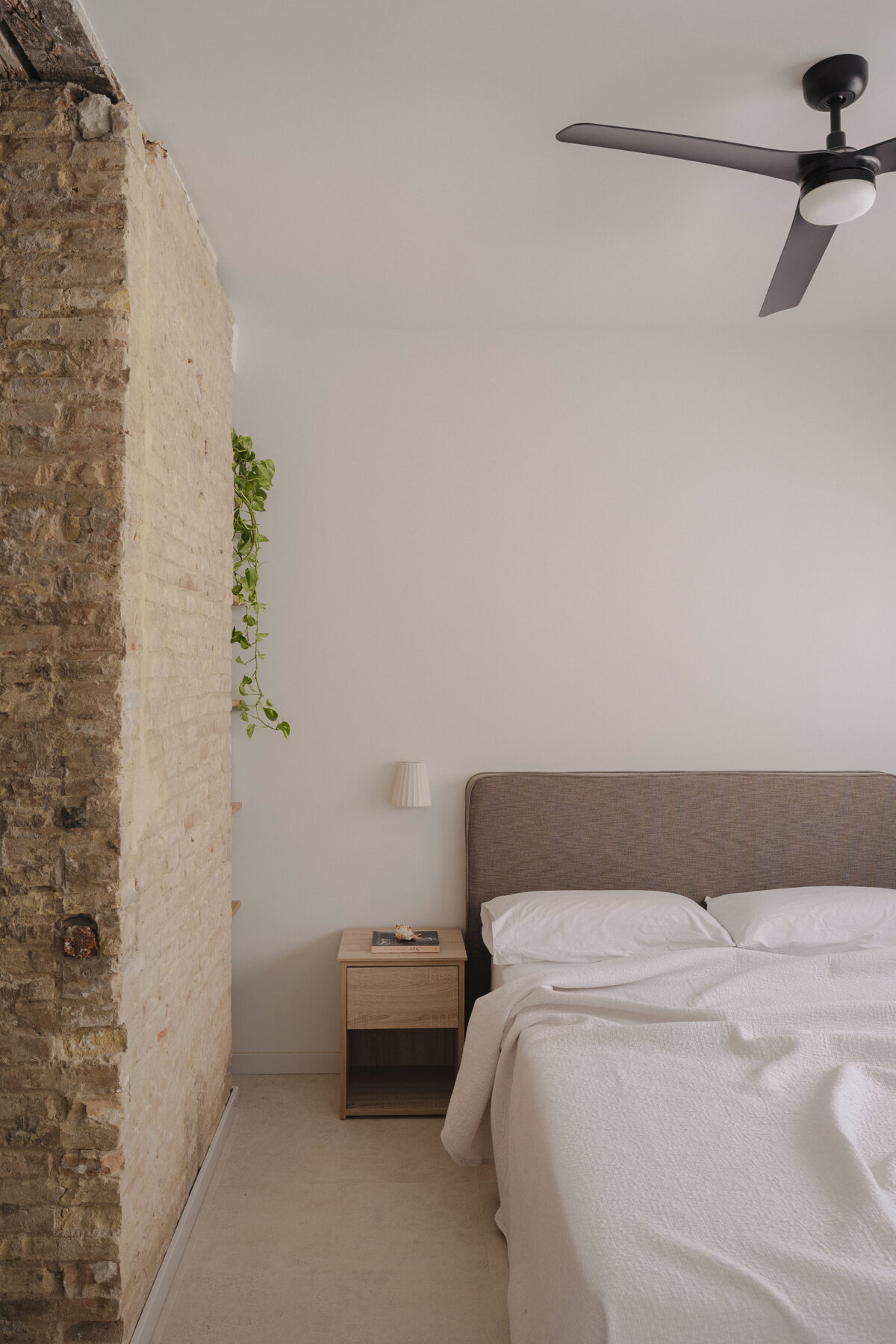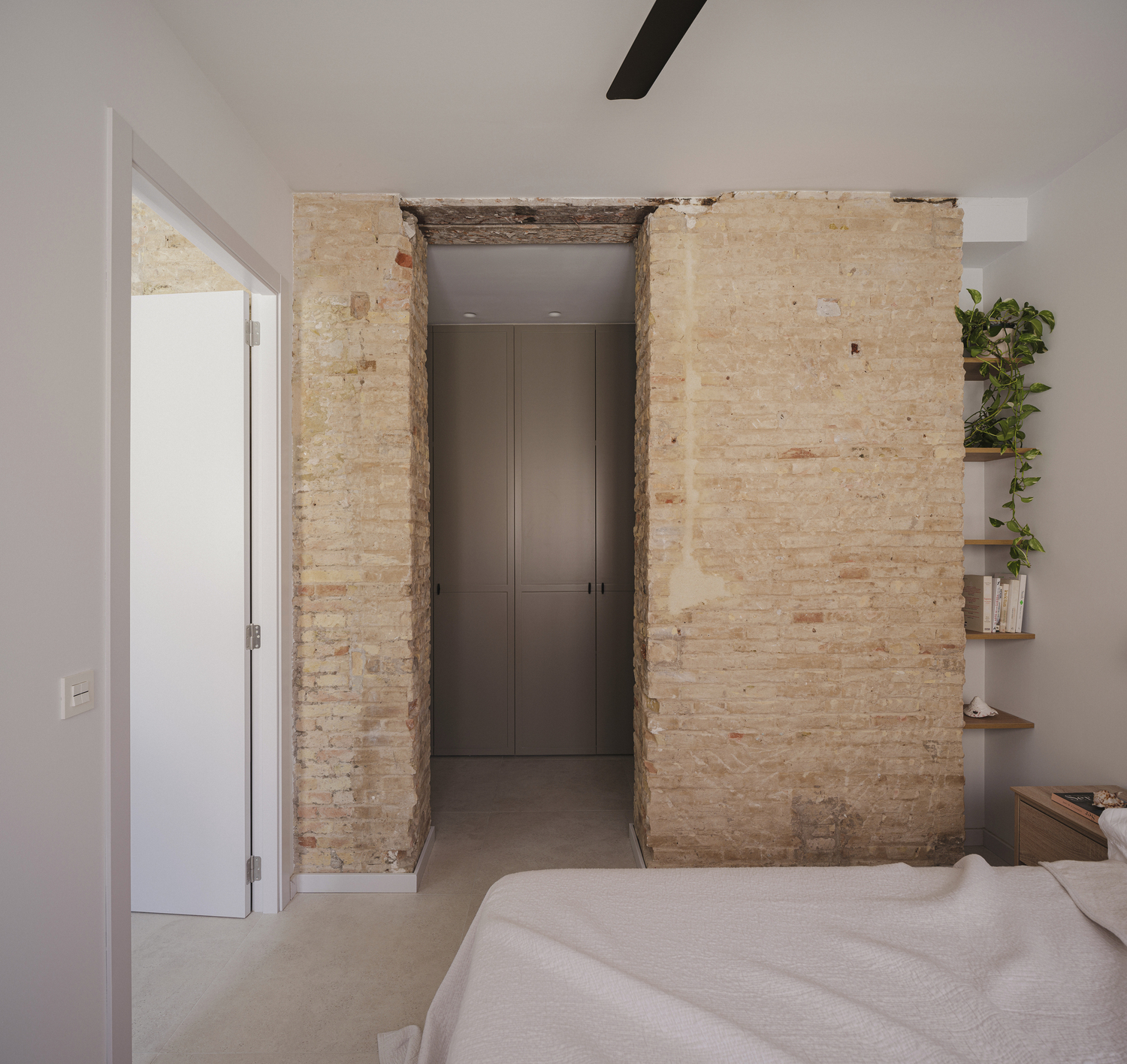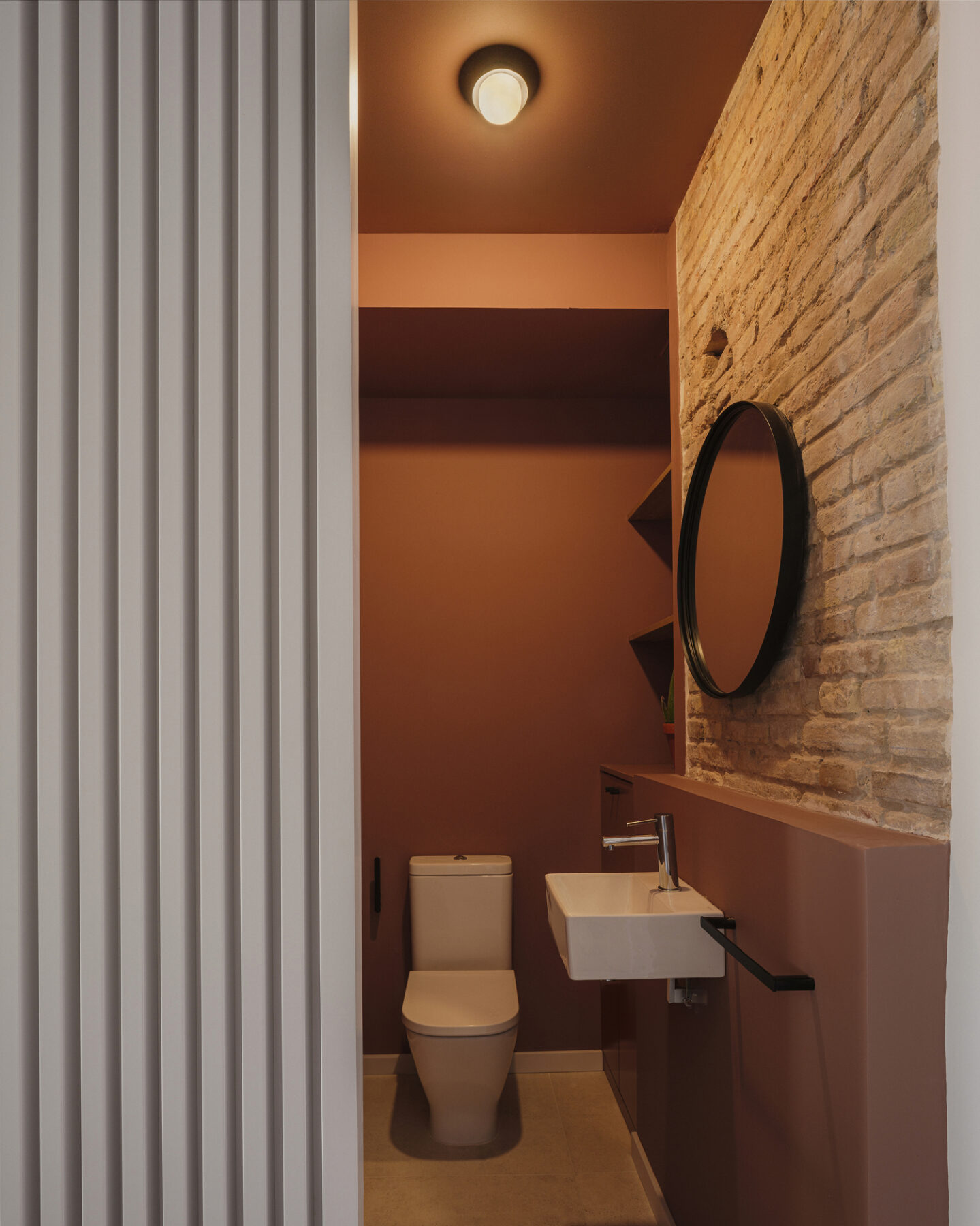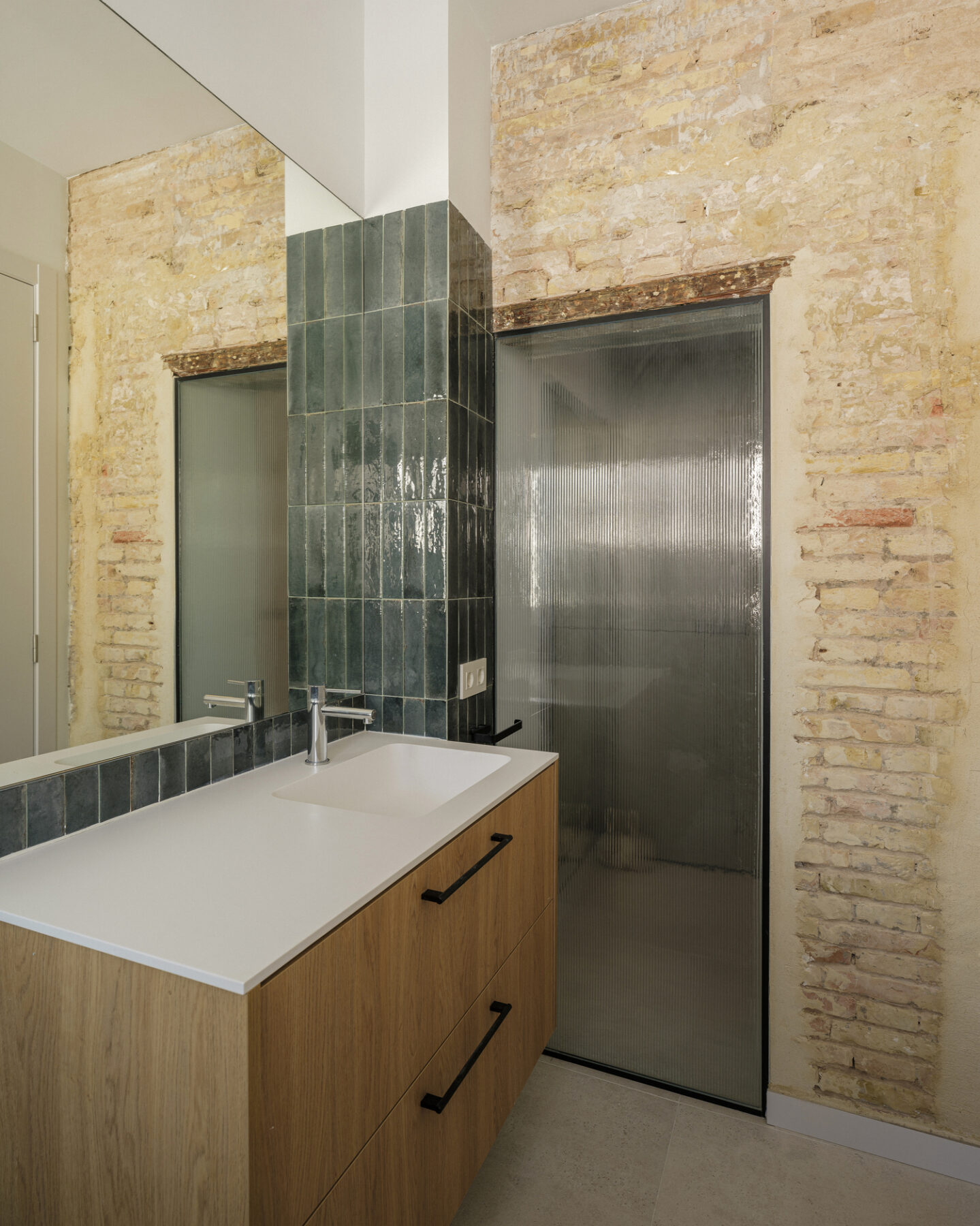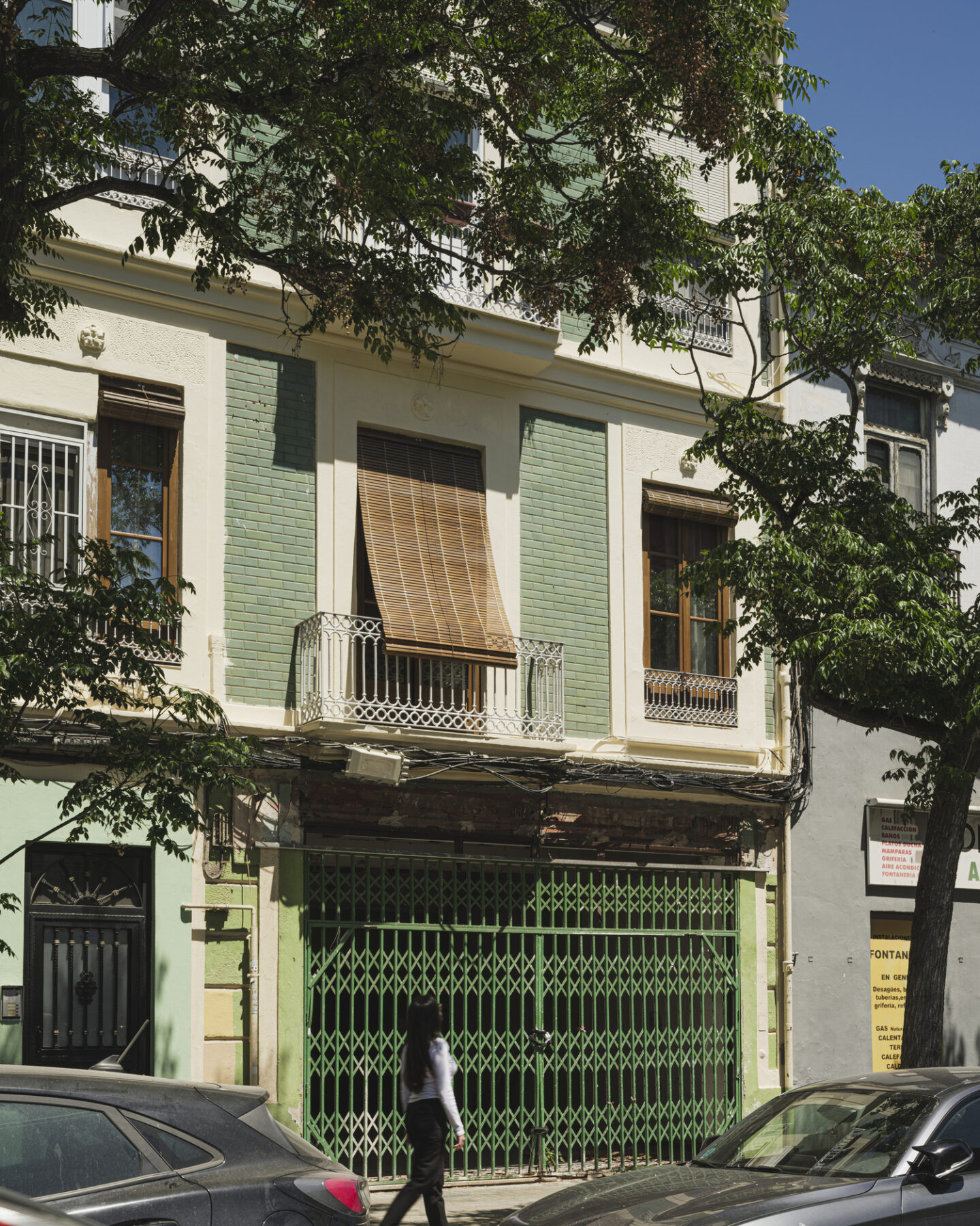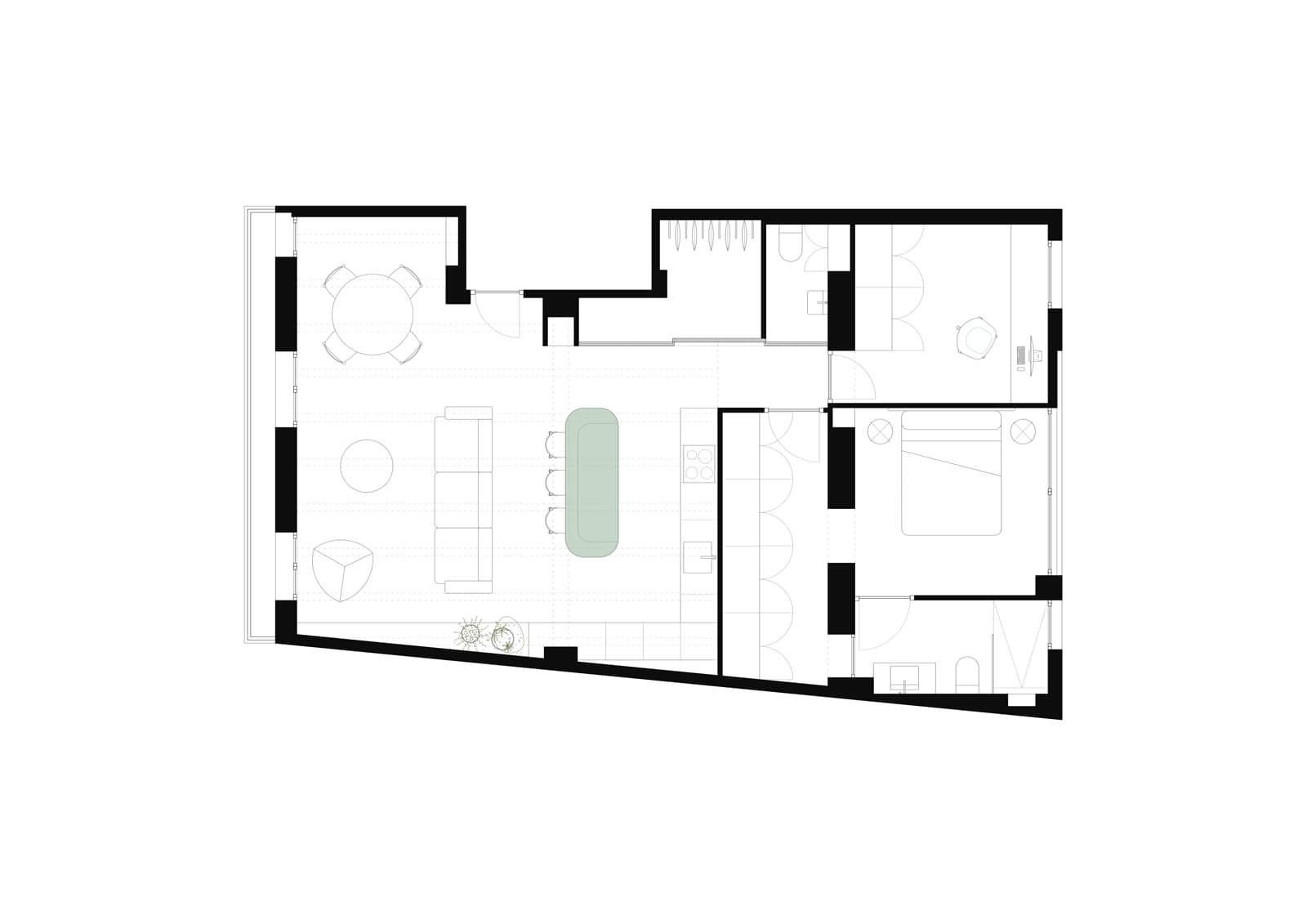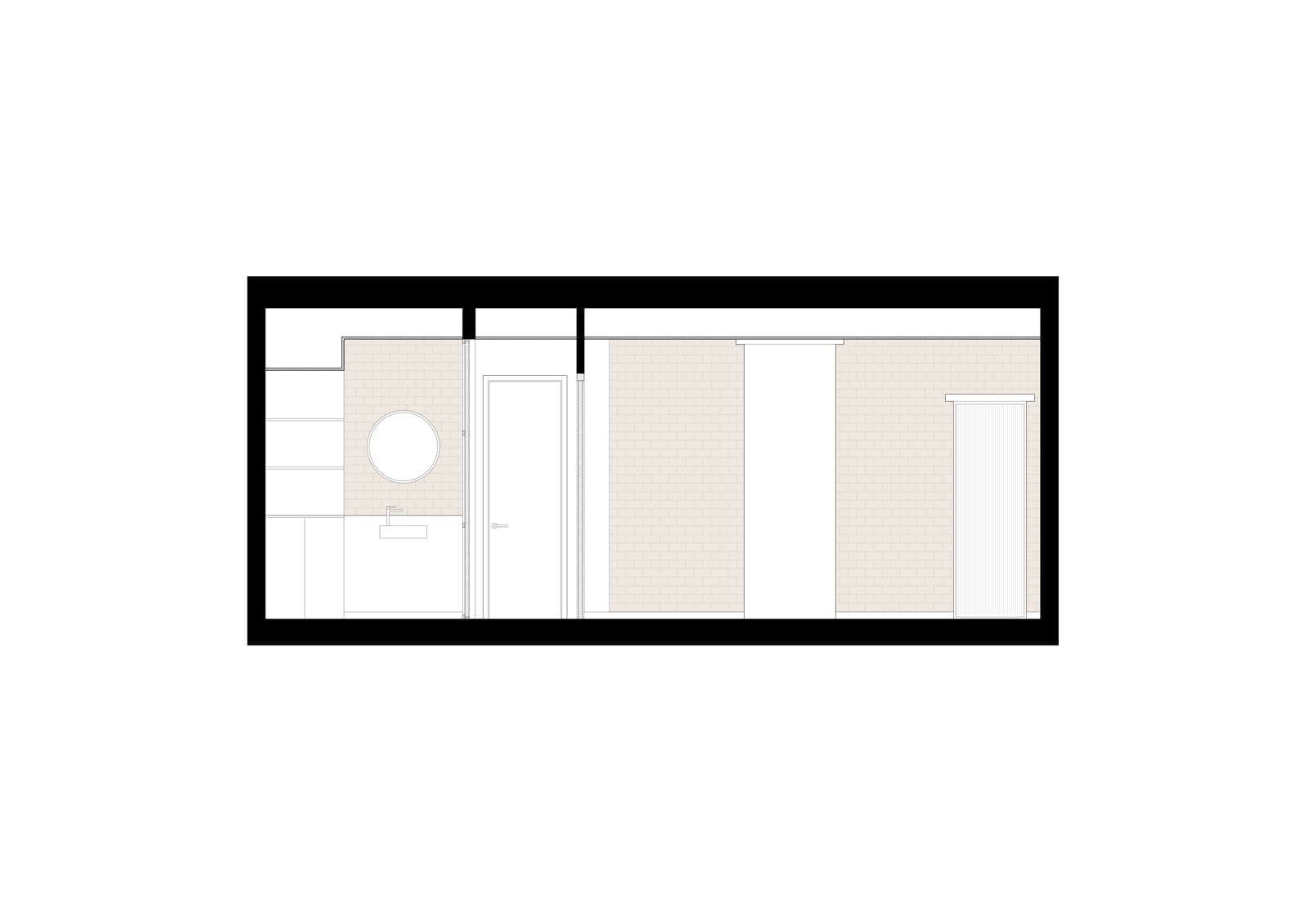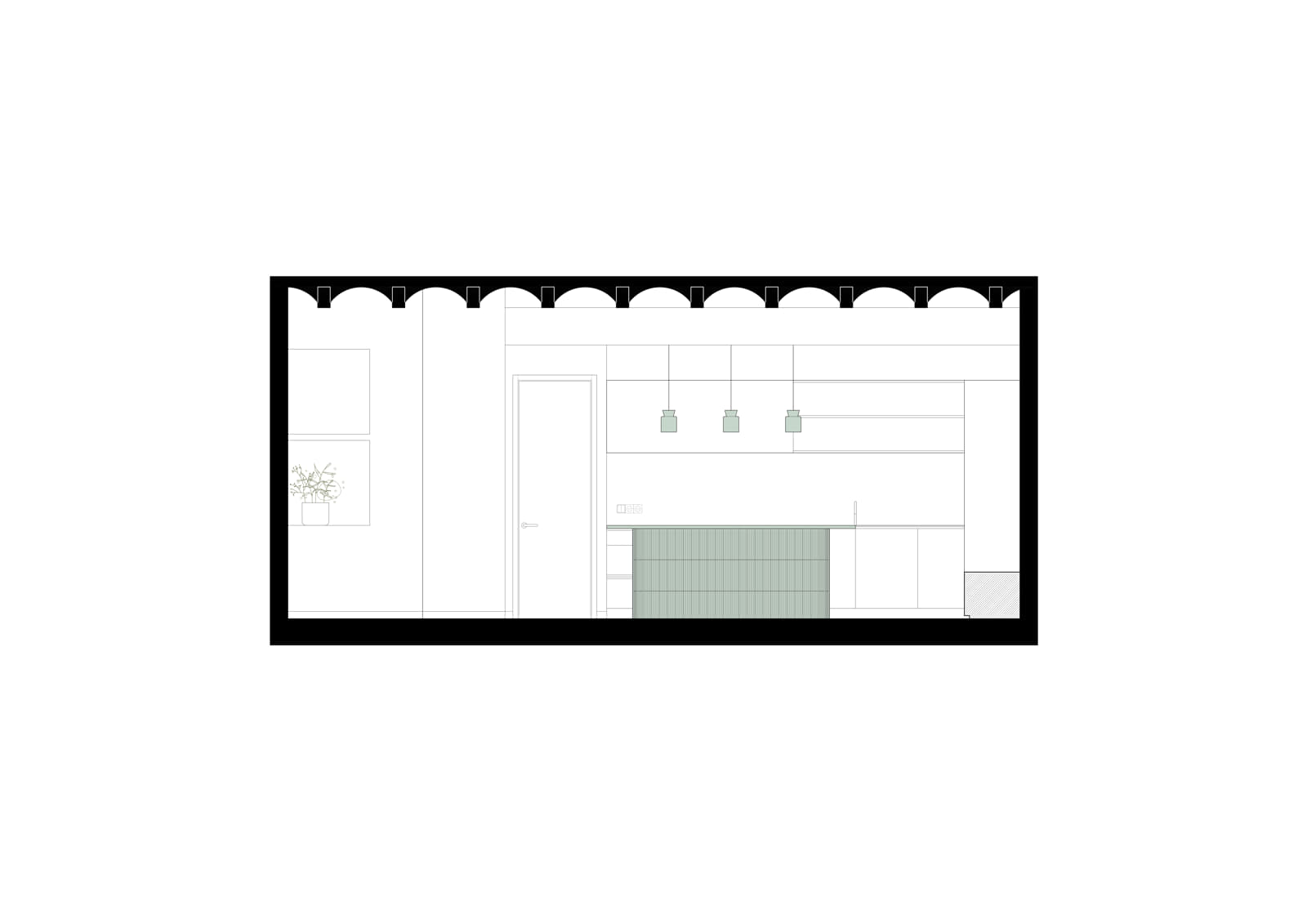Casa Ona is a house in the fishing district of El Cabanyal in Valencia that carries the material memories of the past. While respecting the identity of the building, Paloma Bau interior design studio based the restoration-rehabilitation of the space to Mediterranean materials and tones, crafting a new place for hosting past and future memories.
Paloma Bau’s interior design studio has undertaken the renovation and restoration of Casa Ona, a 1925 residence situated in a protected building in the seaside district of El Cabanyal in Valencia.
From its exterior, the façade, adorned with beautiful turquoise tiles, reflects the character and architectural imprint of this unique property.
The owner, a young sea and surf enthusiast who grew up in this popular fishing neighborhood, decided to breathe new life into his grandparents’ house, transforming it into a modern and functional home while maintaining its Mediterranean essence.
A design inspired by the Mediterranean
Technical architect and interior designer Paloma Bau, along with her team, approached this renovation and restoration project with a respectful perspective.
They have crafted a new space that is a true homage to the Mediterranean, featuring textures and finishes that evoke the sea and beach.
The house, originally dark and heavily partitioned, was stripped of unnecessary coverings, revealing a wooden beam structure and a load-bearing wall that divided the rear terraces.
The continuous sand-colored floor ties together all corners of the house, evoking the long beaches of Bolonia in Cádiz. The day area is centered around a large, washed-green island, made with textured tiles and turquoise green Silestone, reminiscent of the movement of sea water. The kitchen, in neutral tones and oak wood, embraces the living room, unifying both spaces.
The Mediterranean is also reflected in the color palette of the space.
The brown and gray tones, along with a deep and bright blue in the bathroom, evoke the Costa Brava and the open sea. The selected furniture includes Mediterraneanstyle pieces, such as the wooden and rope dining chairs and the microcement coffee table, complemented by linen and cotton textiles.
The façade was restored with a focus on respecting architectural heritage.
Paloma Bau’s team revived its original aesthetic through wooden carpentry and traditional Alicante blinds, elements characteristic of El Cabanyal homes, thus preserving the identity and nature of the building.
Multifunctional spaces and hidden elements
Additionally, the day area features a clever permeable paneling of lacquered wooden slats that hides a storage room for surfboards and a small bathroom inspired by Cala Rotja in Menorca. The private area of the house, consisting of an office and a bedroom with an en-suite bathroom and walk-in closet, retains the old reddish brick load-bearing wall, whose original openings connect the walk-in closet with the bedroom and bathroom.
The decorative lighting, consisting of pieces designed by artisan Adriana Cabello, incorporates various granulations of clay in the same tones, with textured or glazed finishes depending on their location. Meanwhile, the functional lighting project is integrated into the ceilings or hidden in the structures, enhancing the ornamental and decorative details of the space.
Drawings
Plan
Sections
Facts & Credits
Title Casa Ona
Typology Interior, Historic Home Rehabilitation
Location El Cabanyal, Valencia, Spain
Surface 80 m2
Status Completed, 2024
Architecture & Interior Design Paloma Bau
Photography David Zarzoso
Text by the authors
Take a look at another project by Paloma Bau, ‘Carmencita Film Lab’, here!
READ ALSO: Clinical laboratory in Nicosia | by STUDIOADCH
